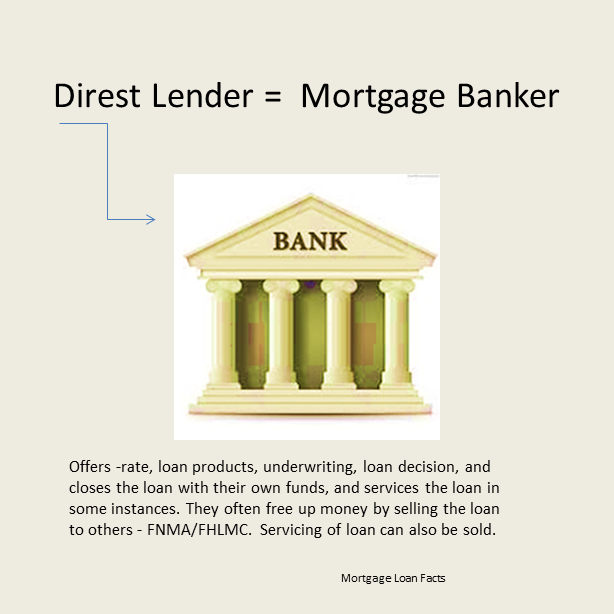You have probably heard the individual who takes mortgage applications as; Mortgage Loan Officer, Mortgage Loan Originator, and Mortgage Loan Representative. Who are they, and what do they do?
These individuals are those who take the mortgage application. They review the documentation requested initially, give the preliminary credit approval, and give sound advice. There are specific requirements to be a Mortgage Loan Originator.
Licensing For Mortgage Loan Originator versus Federally Registered
Mortgage Loan Officers/Originators are required to be licensed through the state for which they originate. The company-entity they work for must also be licensed to practice mortgage loan origination. This includes mortgage broker offices, and mortgage loan companies that are NOT federally associated.
Those who work with a bank, credit union, and other federally regulated depository institution must be federally registered in order to conduct business. This registration is not limited to a particular state.
The latter will often be required to take periodic exams for FDIC rules and other regulations within a bank or federally related entity.
Rules are fairly simple, but some professional education hours are required. More specifically; loan originators must take courses which are followed up with final exams. These courses may be taken online, but must be approved by the state in which one lives.
Loan Officer/Originator Training – Requirements That Are Not Always Spoken
There is a lot more to being a good Mortgage Loan Originator, than just getting a license. Mortgage Lending is a detailed process. Even though the originator does not approve the loan; they should know sufficient rules and regulations. This is to assure the loan can be approved.
Knowledge is the number two requirement after getting a license from the state that the originator is working in.
- All the needed knowledge to originate loans is NOT taught in the courses that are given. For an originator to excel, they must put in some time reading, and studying the guidelines of their company first.
- Next they must study the Secondary Investor – FNMA/FHLMC etc., guidelines.
- This training is usually self-developed, self-studying, and depends upon the experience a person has been acquainted with previously.
For a loan representative to be the best person for the job there are often non-spoken requirements. Often these go unlisted in the rules provided to the individual who wants to originate loans.
Money should not be the game plan for the person seeking to be an originator. This profession should be just like any other job. It should be something that a person enjoys and want to make it their career.
List of Duties for a Loan Originator
- Speaks with clients on the phone and in person.
- Must be knowledgeable about mortgage application questions.
- Knowledge of the specific products that are offered by their employer.
- The originator must know what preliminary documents are needed to begin the mortgage application.
- They must be very knowledgeable about the upfront Loan Disclosures i.e. loan estimate, and the final loan closure document.
- Understanding TILA and RESPA is essential. Rules and Regulations and all file disclosures to explain them to new applicant borrowers.
- The requirements for each product should be explained in detail. This meaning a fixed rate mortgage, ARM -Adjustable rate mortgage, a conventional mortgage, and FHA, VA or USDA, plus any others.
- They should be affluent in what the GSE’s do; Fannie Mac, Freddie Mac, Ginnie Mae, and any other private investors.
- Loan Originators must be at least somewhat knowledgeable of applicable loan features for all products.
- Mortgage insurance requirements, home owner association fees, and any pertinent features.
- Originators must know how to calculate debt to income ratios, loan to value ratios, and standard credit standards.
- They must know when a loan cannot be approved upfront. Meaning, if the credit does not meet minimum qualifying credit standards.
- There should be an understanding of assets, and funds for closing, with guidance from an underwriter if needed.
This does not mean that they can know everything that an underwriter knows. However, the more they know, the more loan applicants they will get approved, and the more money they will make.
Some Originators Complete the Full Processing
When I originated loans, I did my own processing of the file. Yes, I had just stepped out of a senior underwriting position which I had served for over 10 years. However, in the company more were trained to get the documentation together. They also get the approval through Desktop Underwriter (DU, Fannie Mae), or Loan Prospector (LP – Freddie Mac).
The only loans which were declined were those which I knew would be. Not bragging, however, my underwriting experience gave me a significant ability to make good loans. Did, I make errors, yes, a few; we are all human.
That is not always possible with having extended experience within the field. However, for a loan originator to be fully successful they must be willing to keep learning. They should try to know as much as they can about the entire process from origination to closing.
In closing; a Loan Originator must be an accomplished people person who cares about their client’s well-being. They should be prompt with answers to questions, and NEVER offer a product that the client cannot afford.



